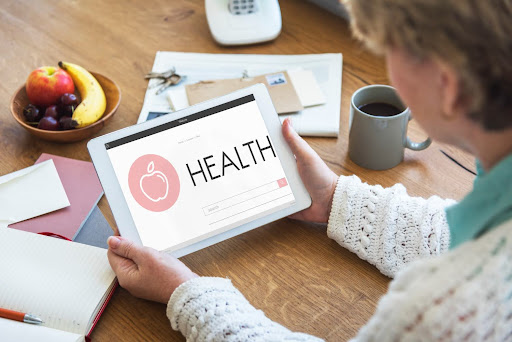October marks National Health Literacy Month, a time for raising awareness about the importance of making informed health decisions.
In Southern New York, Arnot Health is at the forefront of this initiative; we are committed to answering the question of how to improve health literacy within our community.
By providing resources, education, and support, our network aims to equip patients with the knowledge necessary to navigate the complex healthcare landscape.
What is Health Literacy?
Health literacy is the capacity to obtain, process, and understand basic health information or services needed to make appropriate health decisions. It encompasses a range of skills that enable individuals to navigate the healthcare system, ensuring they can access the care they need and understand the information provided to them.
Being health literate means having the ability to not only read and comprehend health-related information but also to apply this knowledge in real-life situations. It involves understanding medical instructions, being able to follow treatment plans, and knowing when (and how) to seek medical advice.
A health-literate person will effectively communicate with healthcare providers, ask pertinent questions, and make informed choices about their health and wellness.
Importance of Health Literacy
When individuals are health literate, they are better equipped to manage chronic conditions, adhere to medication regimens, or engage in preventive health behaviors. This understanding reduces the risk of medical errors while improving health outcomes; the result is an enhanced overall quality of life. Informed decision-making empowers individuals to take control of their health, leading to more personalized, effective healthcare experiences.
Components of Health Literacy
Ability to Read, Comprehend, and Act on Health Information
Health literacy involves reading and understanding health-related materials, such as prescription labels, appointment slips, and educational brochures. Comprehension is key, as it allows individuals to process this information and act accordingly — whether it's taking medication correctly or following a doctor's advice. This way, individuals can make sense of the information they receive and use it to maintain or improve their health.
Navigating the Healthcare System Effectively
Another important part of health literacy is the ability to navigate the healthcare system. This includes understanding how to access healthcare services, knowing the roles of different healthcare providers, and being able to communicate effectively with them.
It also involves understanding health insurance, knowing how to schedule appointments, and being aware of patient rights. Effective navigation of the healthcare system matters; it allows individuals to access the care they need promptly, leading to better health outcomes.
Health Literacy's Impact

Before we explore how to improve health literacy, we have to first acknowledge its immense impact on our patients.
There is a strong correlation between an individual's level of health literacy and their ability to manage their health effectively. Patients with strong health literacy skills tend to have a better grasp of their medical conditions, follow treatment plans more effectively, and participate in preventive health practices, resulting in improved health outcomes.
Conversely, low health literacy can result in poor health management, as individuals may struggle to comprehend medical instructions; this ultimately contributes to medication errors, missed appointments, and inadequate disease management. Low health literacy increases hospitalizations and emergency room visits, as patients are unable to effectively manage their conditions at home.
For example, a person with low health literacy might misunderstand dosage instructions for a medication, leading to either underdosing or overdosing — both of which can have serious health consequences. Similarly, they might not recognize the symptoms of a worsening condition, delaying necessary medical intervention and resulting in more severe health issues that require hospitalization.
Economic Impact
Patients with low health literacy often require more frequent medical interventions (including hospital stays and emergency care), which drive up healthcare costs. Additionally, they may undergo unnecessary tests and procedures due to miscommunication or misunderstanding of their health needs.
Improving health literacy has the potential to generate considerable savings for the healthcare system. By empowering individuals with the knowledge and skills to manage their health effectively, we reduce the frequency of hospital visits as well as the need for costly medical interventions.
Educating patients about preventive care can lead to earlier detection and treatment of health issues, ultimately lowering healthcare costs. Moreover, improved health literacy enhances patient satisfaction and engagement, leading to more efficient use of healthcare resources.
Health Literacy in New York State
Health literacy is a critical issue in New York, with varying levels of literacy across different regions. Recent statistics indicate that a significant portion of the population struggles with understanding and utilizing health information effectively.
According to a study published by the National Library of Medicine (NIH), 20% of participants in the statewide Medicaid Managed Care (MMC) program reported low organizational health literacy. Patients were "more likely to have poorer self-reported health, lower perceived access to health care, and lower satisfaction with their health care." This highlights the need for targeted interventions and educational programs to improve health literacy in the region.
For additional information on NIH health literacy resources, we encourage you to visit the Clear Communication Center.
Challenges to Health Literacy
Several challenges contribute to the low levels of health literacy in New York State. Language barriers are a significant obstacle, as many residents do not speak English as their first language. Such a challenge makes it difficult to comprehend medical information and communicate effectively with healthcare providers.
Cultural differences also play a role, as diverse cultural backgrounds influence how individuals perceive health management as a whole — potentially leading to misunderstandings or mistrust of the healthcare system.
Socioeconomic factors further exacerbate the issue of health literacy. Individuals from lower socioeconomic backgrounds have limited access to education and resources, often hindering their understanding of health information. Additionally, these individuals may face challenges such as lack of transportation, limited access to healthcare facilities, or financial constraints, impacting their ability to seek and receive appropriate care.
How to Improve Health Literacy: Strategies and Resources
Improving health literacy is essential for stronger patient outcomes and effective healthcare delivery.
Health Literacy Programs for Healthcare Professionals
Training programs equip practitioners with the skills needed to communicate more effectively with patients. These programs can focus on developing clear communication techniques, active listening, and empathy, enabling providers to convey complex medical information in a way that is easily understood by patients.
Use of Plain Language and Visual Aids
Simplifying medical jargon and using clear, concise language helps patients grasp important information. Visual aids (i.e. diagrams, charts, and videos) further clarify complex concepts, making it easier for patients to follow treatment plans and make informed health decisions.
Community Workshops and Seminars
Organizing community workshops can empower individuals to better understand health information. These events might cover topics such as reading prescription labels, understanding medical instructions, and navigating the healthcare system. By providing a supportive environment, these initiatives will address how to improve health literacy and encourage proactive health management.
Health Literacy for Patients: Resources and Tools
Providing patients with access to a greater variety of resources can also help them improve their health literacy. For example, printed materials, online resources, and support groups are excellent options to offer guidance on managing health conditions.
Libraries, community centers, and healthcare facilities could serve as hubs for distributing these resources, ensuring they reach those who need them most.
Digital Tools
Digital tools or apps can provide interactive, personalized health information, making it more accessible and engaging for patients. Features such as medication reminders, symptom trackers, or educational videos may help patients better understand their health conditions.
Additionally, telehealth facilitates communication between patients and providers, allowing for real-time clarification of health information.
Arnot Health's Initiative for Improving Health Literacy
Arnot Health is committed to improving health literacy among our patients. By focusing on clear communication, we help patients better understand their medical conditions, treatment options, and the healthcare system as a whole.
At Arnot Health, the focus is on supporting patients and their families through every step of their healthcare journey. Our team provides a wealth of resources to help patients understand their rights and responsibilities, manage their care, and make informed decisions. This includes information on advance directives, discharge planning, pain control, and financial assistance.
We also prioritize transparency in billing and insurance, offering clear explanations of financial support. Through our online bill-pay system, patients can manage healthcare expenses hassle-free.
How You Can Get Involved
Getting involved in health literacy initiatives is a rewarding way to contribute to the well-being of your community! Here are some ways you can make a difference!
Volunteer Opportunities
Arnot Health offers numerous volunteer opportunities for community members who want to support health literacy initiatives. Volunteers play a crucial role in supporting the operations of Arnot Health, assisting patients, staff, and visitors across various facilities.
- Arnot Ogden Medical Center Volunteer Program: Join a team dedicated to enhancing patient care and experience. Volunteers assist in various departments, providing essential support to healthcare professionals and patients alike.
- St. Joseph's Hospital Volunteer Program: Contribute your time and skills to help create a welcoming, supportive environment for patients and their families. Volunteers at St. Joseph's Hospital are integral to the hospital's mission of delivering compassionate care.
- Ira Davenport Memorial Hospital Volunteer Program: Be part of a community-focused team that supports the hospital's operations and patient care initiatives. Volunteers at Ira Davenport Memorial Hospital help ensure that patients receive the best possible care.
Advocacy and Awareness
Beyond volunteering, simply spreading awareness about the importance of understanding health information can lead to better health outcomes for everyone.
- Educate Others: Share information about health literacy with friends, family, and colleagues. Discuss the importance of understanding medical information and how it can impact health decisions.
- Participate in Events: Attend or organize community events focused on health literacy. These events could include workshops, seminars, or health fairs that provide valuable information and resources to the public.
- Support the Arnot Health Foundation: Consider contributing to the Arnot Health Foundation, which supports various health initiatives, including health literacy programs. Your donations can help fund educational materials, workshops, and other resources that promote health literacy.
Arnot Health: Putting Health Literacy First
When patients understand how to improve health literacy, they are empowered to navigate the healthcare system with confidence! We invite you to explore our patient center for more information or to schedule an appointment with us to discuss your health journey in person. Find a provider near you today!


